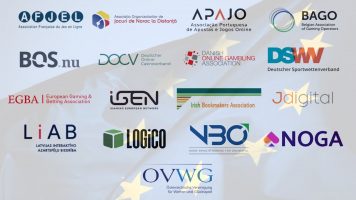Legislation
Switzerland – Industry groups send letter to European Commission in support of re-established EU Expert Group on Gambling
By Lewis - 1 July 2021
17 trade associations, representing the leading online gambling operators in the EU, have sent a joint letter to the European Commissioner for Internal Market, Thierry Breton, calling for the European Commission to re-establish the EU Expert Group on Gambling Services to support regulatory cooperation between Europe’s gambling authorities.
The key recommendation from the industry group is for a ‘basic EU-level structure’ for cooperation and information exchange between national gambling authorities – ‘a pre-requisite for a safe and well-functioning online gambling market in the EU’.
The call to action follows a similar request recently issued by 13 national gambling authorities.
The letter was signed by Association Française du Jeu en Ligne, Asociația Organizatorilor de Jocuri de Noroc la Distanță, Associação Portuguesa de Apostas e Jogos Online, Belgian Association of Gaming Operators, Branschföreningen för Onlinespel, Deutscher Online Casinoverband, Danish Online Gambling Association, Deutscher Sportwettenverband, European Gaming and Betting Association, iGaming European Network, Irish Bookmakers Association, Asociación Española de Juego Digital, Latvijas interaktīvo azartspēļu biedrības, Lega Operatori di Gioco su canale Online, Norsk Bransjeforening for Onlinespill, Netherlands Online Gambling Association, and Österreichische Vereinigung für Wetten & Glücksspiel.
The letter in full can be found below:
Dear Commissioner,
We, the below 17 EU/EEA-based associations of online gambling providers, are writing to you to support the recent request made to you by 13 national gambling authorities to reinstate the Commission-mandated EU Expert Group on Gambling Services (E02868) which was disbanded by the Commission in 2018.
Our associations represent the interests of European online gambling operators, all of whom are established, regulated and licensed in the EU/EEA and provide online gambling services in full compliance with both EU and national regulations.
Our member companies also contribute significant taxes and levies to the EU economy, and these will likely increase in the years to come. European online gambling revenue is expected to increase from €20.6bn in 2020 (39 per cent of Europe’s total on- and offline gambling revenue) to €44bn by 2026.
A major challenge our members face is growing competition from gambling websites which are based outside of and do not pay taxes in the EU and certainly do not have to comply with the strict gambling licensing and regulatory requirements which exist in EU member states – yet are still easily accessible to EU citizens.
This not only negatively affects our member companies but is obviously detrimental to any EU consumer who plays on these non-EU based websites where they are not protected by EU regulations, such as on data protection or anti-money laundering, and the many gambling regulations which apply in EU member states.
It is estimated that, in 2020, no more than 55 per cent of European online gambling spend was on websites licensed in European countries.
It is therefore in the interest of both EU consumers and online gambling operators that there is a much better EU-level cooperation and information exchange between national gambling authorities to tackle the problem of non-EU based gambling websites which target the EU market and its consumers.
There are also other tangible benefits that will come from regular and structured cooperation between gambling authorities.
The establishment of an EU-wide reporting standard to gambling authorities, in the context of European Committee for Standardization (CEN), is a very good example of how fragmented approaches at national level can be readily solved by common, joint solutions which are applicable across the EU.
Not only are there many costs involved in not having more common policy and technical standards in the EU online gambling sector, but fragmentation also leads to higher compliance risks and suboptimal policy solutions, as making national policy in isolation is less effective and efficient compared to exchange of information and best practices.
Similarly, providing a more common, high level of consumer protection is extremely important in our sector and this would be reinforced by structured cooperation between national gambling authorities at EU-level and through the development of common solutions, supported by data and information exchange.
Finally, a stronger, more joined up regulatory environment supported by regular, formal, and structured regulatory cooperation would greatly increase the attractiveness of the regulated online gambling offer in EU member states, both in terms of providing effective consumer protection and a better consumer experience, compared to that of unregulated and dangerous black-market websites.
A basic EU-level structure for cooperation and information exchange between national gambling authorities is a pre-requisite for a safe and well-functioning online gambling market in the EU, particularly that it is sector which is non-harmonised at EU-level but touches the lives of millions of Europeans.
We therefore urge you to reinstate the Commission-mandated EU Expert Group on Gambling Services.


